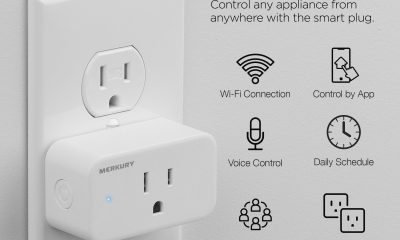Guides
FPMomHacks: Essential Relationship Tips for Moms

Introduction
Motherhood is one of life’s most rewarding yet challenging journeys. Between caring for children, managing a household, and balancing personal and professional responsibilities, moms often find themselves stretched thin. Amid all these demands, maintaining healthy relationships—with partners, children, family members, and even themselves—can sometimes take a back seat. However, the quality of these relationships greatly influences a mother’s happiness, emotional health, and the overall harmony of the household. Small, intentional actions can create a positive ripple effect, strengthening bonds and fostering trust, love, and respect within the family.
In this article, we share practical, actionable relationship tips specifically for moms, covering communication, boundaries, self-care, conflict resolution, and emotional connection. By applying these strategies, mothers can nurture fulfilling relationships while also prioritizing their own well-being, ultimately creating a happier and healthier family environment.
Prioritize Open Communication
Clear and honest communication is the cornerstone of every strong relationship. Moms should strive to create a safe space where family members feel comfortable expressing feelings, thoughts, and concerns. Listening actively—without interrupting or judging—helps children and partners feel heard and valued. Simple gestures, such as checking in daily or asking open-ended questions, encourage meaningful dialogue and foster emotional intimacy.
Set and Respect Boundaries
Establishing boundaries is crucial for preserving personal energy and maintaining mutual respect. Moms should communicate their limits clearly, whether related to personal time, household responsibilities, or emotional space. At the same time, respecting the boundaries of others teaches children and partners about consent, autonomy, and empathy. Healthy boundaries prevent resentment and promote balance in family dynamics.
Embrace Quality Time Over Quantity
It’s not always about how much time you spend with loved ones, but how meaningful that time is. Engaging in activities that promote connection—like family meals, shared hobbies, or simple conversations—creates lasting bonds. Scheduling regular “family moments” can help everyone feel prioritized, even during hectic routines.
Practice Self-Care Without Guilt
Mothers often prioritize everyone else’s needs over their own, leading to burnout. However, self-care is essential for emotional resilience and effective caregiving. Moms should dedicate time for hobbies, exercise, relaxation, or socializing. Self-care recharges energy, reduces stress, and sets a positive example for children about valuing personal well-being.
Foster Mutual Respect and Appreciation
Respect and gratitude are powerful tools for nurturing relationships. Regularly acknowledging your partner’s efforts, praising your children’s accomplishments, and expressing appreciation for small acts of kindness strengthens familial bonds. A culture of mutual respect encourages open dialogue, reduces conflict, and builds trust.
Adapt to Changing Dynamics
Families evolve over time. Children grow, relationships shift, and responsibilities fluctuate. Moms should embrace these changes as opportunities to strengthen connections rather than threats. Flexibility, understanding, and patience during transitions help families navigate challenges without friction.
Address Conflicts Constructively
Disagreements are inevitable. The key is to handle conflicts with calmness and cooperation. Avoid blame, focus on solutions, and prioritize understanding. Teaching children constructive problem-solving skills and modeling respectful conflict resolution for partners fosters a more harmonious household.
Lead by Example
Children learn primarily through observation. Demonstrating empathy, active listening, and healthy communication habits equips them with essential life skills. Similarly, partners respond positively when a mother models respect, gratitude, and resilience. Leadership through example reinforces the behaviors you hope to cultivate within the family.
Seek Support When Needed
Motherhood can be isolating, and seeking help is a sign of strength, not weakness. Moms should build a support network—friends, family, or professional counselors—for guidance, encouragement, and practical advice. Sharing experiences reduces stress and provides new perspectives on relationship challenges.
Celebrate Togetherness
Amidst responsibilities, don’t forget to celebrate connection. Traditions, family rituals, shared experiences, or spontaneous acts of kindness create memories and strengthen bonds. Celebrating achievements and small joys reinforces positivity and fosters a sense of unity.
Maintain Emotional Availability
Being emotionally present is crucial for deep connections. Moms should listen with empathy, validate feelings, and provide comfort when family members need support. Emotional availability encourages open communication and creates a safe environment where everyone feels understood and valued.
Encourage Growth and Independence
Healthy relationships thrive when family members are encouraged to grow individually. Moms should support children’s independence, partners’ personal goals, and even their own aspirations. Encouraging growth reduces dependence, fosters confidence, and strengthens mutual respect.
Balance Discipline and Nurturing
Parenting requires both guidance and warmth. Setting clear expectations while showing empathy and support teaches responsibility without damaging the parent-child bond. Balance ensures children understand consequences while feeling loved and secure.
Use Positive Reinforcement
Acknowledging and rewarding positive behavior motivates continued effort and fosters a supportive environment. Praise, encouragement, and small rewards nurture self-esteem in children and appreciation in partners, strengthening relationships over time.
Practice Gratitude Daily
Gratitude shifts focus from what’s lacking to what’s abundant. Moms can make it a daily habit to express appreciation for family members’ actions, words, or simply their presence. Gratitude cultivates positivity and reinforces emotional connections.
Read More: Boylecheloid Flower – Myth, Meaning & Reality
Conclusion
Nurturing strong relationships as a mother requires intention, patience, and consistent effort. By prioritizing open communication, setting healthy boundaries, embracing quality time, practicing self-care, and fostering mutual respect, moms can build lasting connections with their partners, children, and even themselves. Additionally, adapting to changes, resolving conflicts constructively, seeking support, and celebrating family togetherness further strengthen relational bonds. These practices not only enhance emotional well-being but also create a harmonious home environment where love, trust, and respect flourish.
Remember, a mother’s relationships are intertwined with her own sense of fulfillment and happiness. Investing time and energy into maintaining these connections enriches family life, models healthy behavior for children, and ensures a nurturing space where everyone thrives. Strong relationships are the backbone of a resilient, joyful, and supportive family.
FAQs:
-
How can I communicate better with my teenage children?
Focus on listening without judgment, asking open-ended questions, and validating their emotions to create trust and openness. -
What are some effective ways to set boundaries with my partner?
Clearly define your personal limits, communicate them calmly, and consistently reinforce them while respecting your partner’s boundaries. -
How can I find time for self-care as a busy mom?
Schedule small, consistent self-care activities, like reading, walking, or short breaks, and treat them as non-negotiable appointments. -
What strategies help resolve conflicts constructively in a family?
Stay calm, avoid blame, focus on solutions, and practice active listening to understand perspectives and reach compromises. -
How do I strengthen my relationship with children as they grow?
Maintain open communication, support their independence, spend quality time together, and model respectful and empathetic behavior.
-

 Gadgets2 years ago
Gadgets2 years agoDoes Nest Thermostats Contain Cameras Or Microphones? Is It Safe For you?
-

 Guides1 year ago
Guides1 year ago10 Best Apps To Control All Your Smart Home Devices.
-

 Gadgets2 years ago
Gadgets2 years agoWhat Is The Purpose Of Red Button On The SimpliSafe Keypad?
-

 Gadgets2 years ago
Gadgets2 years agoComplete Guide About Equalizer settings for Samsung-Soundbar
-

 Accessories2 years ago
Accessories2 years agoBlink Camera’s Temperature Sensor Settings, and More
-

 Solutions3 years ago
Solutions3 years agoWhy is My Samsung TV Picture So Dark? Exploring the Possible Causes
-

 Gadgets3 years ago
Gadgets3 years agoFitbit Symbols Meaning: What Do The Fitbit Icons Mean?
-

 Accessories2 years ago
Accessories2 years agoCan Siri Control Samsung Televisions And Are Samsung TVs Homekit Compliant?























































































































